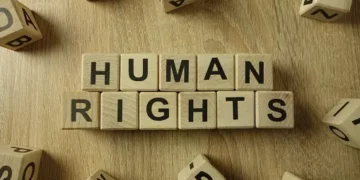The United States has imposed sanctions on key leaders of Sudan’s Rapid Support Forces (RSF), citing their involvement in extensive human rights violations amid ongoing conflict with the Sudanese military. The targeted sanctions, announced on Wednesday, focus on Abdelrahim Dagalo, the RSF’s deputy commander, and Abdul Rahman Juma, a leading general in the RSF’s West Darfur operations.
The US Treasury Department has frozen Abdelrahim Dagalo’s assets within the US, while the State Department has imposed visa restrictions on Juma. This action marks a significant escalation in the US response to the conflict in Sudan, targeting the most senior RSF leaders since the outbreak of hostilities earlier in the year.
Secretary of State Antony Blinken emphasized the US commitment to preventing the escalation of the conflict and supporting the Sudanese people’s pursuit of peace and democratic governance. He warned that the US would actively use its resources to impede the RSF and Sudanese Armed Forces (SAF) from prolonging the war.
The conflict between the RSF and SAF, which began in mid-April, has resulted in thousands of deaths and displaced over four million people. The United Nations has highlighted the gravity of the situation, declaring Sudan to be facing a significant humanitarian emergency.
Despite international mediation efforts, including those by the US and Saudi Arabia, only temporary ceasefires have been achieved. The ongoing violence has also led to targeted attacks against African, non-Arab communities in Darfur, with rights groups attributing these actions to the RSF and allied militias.
The US Treasury highlighted credible accusations of human rights abuses by the RSF and allied militias, including sexual violence and ethnically targeted killings. Furthermore, the State Department has implicated forces under Juma’s command in the abduction and murder of Khamis Abbakar, the governor of West Darfur.
While the RSF has refuted these allegations and accused the SAF of attacking civilian areas, the SAF, led by General Abdel Fattah al-Burhan, has also denied any misconduct and accused the RSF of war crimes.
The US aims to first de-escalate the violence in Sudan before working towards a lasting resolution and return to civilian governance. Earlier in June, the US had sanctioned entities affiliated with RSF chief Hemedti and military-linked defense firms.
On Wednesday, Blinken urged all parties in the conflict to adhere to international humanitarian law, protect civilians, ensure accountability for abuses, allow unhindered humanitarian access, and engage in peace negotiations.
The relationship between Khartoum and Washington had been improving post-2019, following the Sudanese military’s removal of President Omar al-Bashir and subsequent diplomatic engagements. However, the military coup against Prime Minister Abdalla Hamdok’s civilian government in 2021 and subsequent developments have impacted this positive trajectory. Currently, Al-Burhan effectively governs Sudan, with Hemedti having been removed from his deputy position after a fallout with the army.
Discover comprehensive supply chain report news insights at The Supply Chain Report. For international trade resources, visit ADAMftd.com.
#USSanctions #SudanConflict #RapidSupportForces #HumanRightsViolations #RSF #AbdelrahimDagalo #AbdulRahmanJuma #SudanMilitaryCoup #SudanPeace #HumanitarianCrisis #ConflictResolution #InternationalLaw #DemocraticGovernance #SudanesePeoplesRights #UNEmergency #DarfurViolence #USStateDepartment #AntonyBlinken #SudanWar #HumanRightsAbuses #PeaceNegotiations #SudanSanctions #SudaneseConflict #SudanMilitary #InternationalMediation















